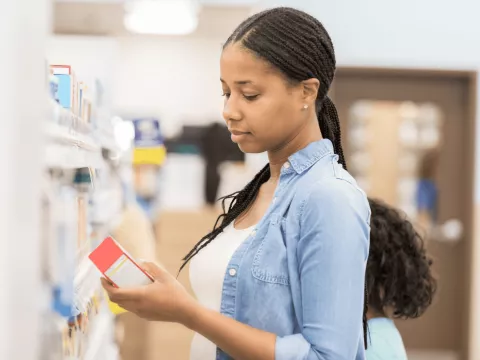- AdventHealth

Choose the health content that’s right for you, and get it delivered right in your inbox.
Whether you’re a seasoned athlete or looking to maintain your health, playing sports is a great way to prioritize your heart health while having fun with your loved ones. Although it’s rare, there are certain cases where individuals experience a sudden cardiac arrest while playing sports. It’s important to remain mindful of this so you can stay prepared and help prevent it from happening.
Keep reading to learn more, including what causes these sudden events, why playing sports is a factor, how to prevent it and how to help someone in this situation.
Understanding What’s Happening in the Body
The terms cardiac arrest and heart attack are often used interchangeably. However, they mean different things. A cardiac arrest occurs when the heart suddenly stops beating or beats ineffectively, often due to underlying health concerns like arrhythmias and other electrical malfunctions of the heart. A heart attack is when the blood supply is blocked to the heart in the arteries. While both conditions affect the heart, their causes and prevention methods differ.
The Role of Physical Activity in Sudden Cardiac Arrest
The heart rate increases when exercising, and more blood and oxygen are required to fuel the body. Oftentimes, someone experiences a sudden cardiac arrest while exercising because their physical exertion triggers underlying electrical malfunctions in the heart. When this happens, their heart stops beating, cutting off the blood and oxygen supply, leading to the heart muscle suffering damage.
Adrenaline surges and overexertion during physical activity are other reasons for this. The increased adrenaline and overexertion can destabilize the heart's electrical system. This is why someone who seems to be in good health can experience a sudden cardiac arrest. The most common electrical heart malfunction that leads to sudden cardiac arrest is ventricular fibrillation. When this happens, the electrical signals in the heart are disrupted, and the heart begins to quiver and stop pumping blood.
Know the Warning Signs
Unfortunately, there’s usually little warning before experiencing a sudden cardiac arrest. However, there are certain symptoms to be mindful of, including:
- Chest pain or discomfort
- Fainting
- Fast, fluttering or pounding heartbeat
- Shortness of breath
- Weakness in the body
If you or a loved one experiences any of these symptoms before or after exercise, visit your primary care provider for the compassionate care you need.
How to Prevent a Sudden Cardiac Arrest
Practicing preventive health care, like regular screenings, is the best thing you can do to prevent a sudden cardiac arrest. Make a habit of visiting your primary care provider every year for a physical. This ensures your health is evaluated frequently enough to catch the warning signs before they become issues.
If you have a family history of heart disease or are experiencing common symptoms before or after exercise, it’s a good idea to schedule an electrocardiogram (ECG). ECGs help to detect hidden electrical or structural issues in the heart, allowing your health care team to curate a treatment plan to get you back to whole health.
It’s also a good idea to avoid stimulants like alcohol or drugs if you know you have an underlying heart condition. Excessive caffeine can also trigger heart conditions, so it’s best that you talk to your doctor to see what you should avoid consuming.
Treating Sudden Cardiac Arrest
If someone collapses and you suspect it was a sudden cardiac arrest, call 911 and begin CPR as soon as possible. It’s important to continue applying CPR until the professionals arrive. If there’s an automated external defibrillator (AED), use that to help reset the heart's natural rhythm.
If they haven’t collapsed but are experiencing symptoms, it’s recommended that you give them aspirin because it helps to thin the blood and prevent clots from forming. Take them to the nearest hospital and do your best not to let them drive if their symptoms worsen, leaving them unable to drive.
Expert Cardiology Care Designed for Your Whole Health
When it comes to matters of the heart, we know that every second matters. That’s why our ER teams are on standby, ready to provide the care you need. With leading-edge technology and world-class specialists, we have what it takes to help you heal.
Visit us here to find your nearest ER or learn more about our heart and vascular care services. We’ve got your back.



